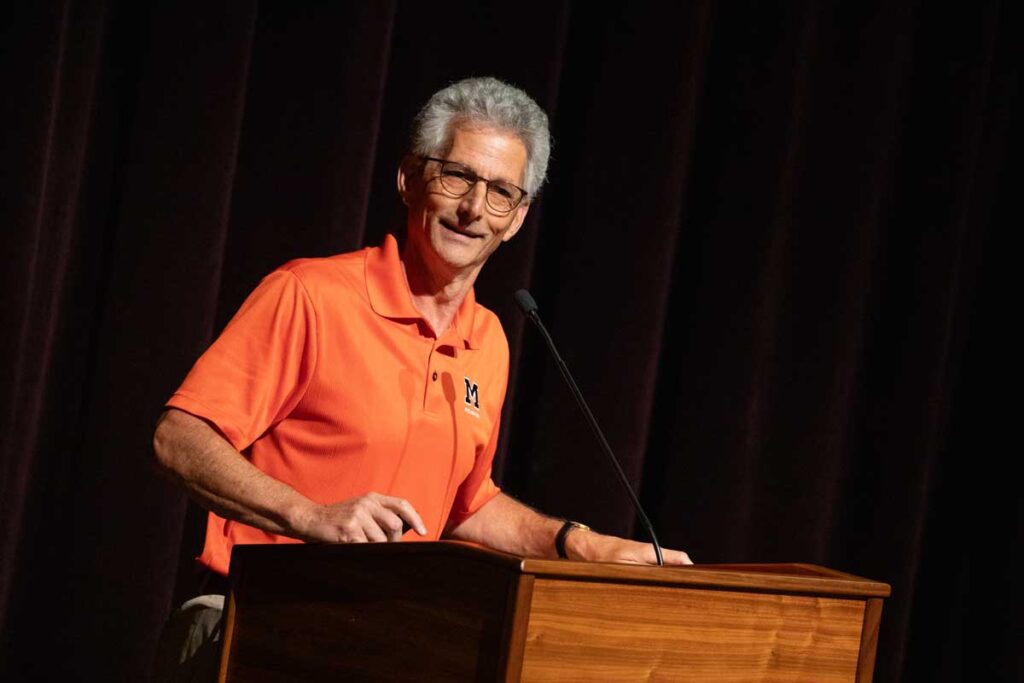 By Melissa Layne, Director of Research Methodology and Editor-in-Chief for Internet Learning Journal
By Melissa Layne, Director of Research Methodology and Editor-in-Chief for Internet Learning Journal
Are leaders born or made? This widely debated question has been a topic of conversation for decades. I decided to ruminate upon this question after being chosen as the recipient of the Wagner Award for Distance Education Leadership, sponsored by Pearson Learning Solutions. Recipients of this award were asked to deliver a short 10-minute acceptance speech, so I chose the controversial born versus made question to frame my speech.
Existing research on leadership largely focuses on leader effectiveness. Behavioral researchers have uncovered certain traits, abilities, behaviors, and situational aspects that led to leaders being able to influence followers toward accomplishing work-related goals. However, as a leader for an all online university who works remotely, I began to contemplate these characteristics and how they manifest in a virtual leadership position.
Paradigm Shift: Face-to-Face Leadership Versus Virtual Leadership
Not surprisingly, the dearth of academic research comparing face-to-face leadership to virtual leadership concludes that levels of leadership effectiveness are very similar. This is because the fundamental goals and objectives of leadership remain the same. Dr. Phil Ice Vice President of Research and Development for American Public University System, reiterates this similarity:
“As the physical and virtual worlds increasingly converge, defining mutually exclusive characteristics in either realm is becoming increasingly less meaningful. The person who excels at face-to-face contact is now being asked to adapt to a partially distance based paradigm. Similarly, the leader who can capture paralinguistic cues at a distance must also be proficient at interactions when meeting colleagues in person. As such, being an effective leader is, if anything, become more complex as the physical/virtual convergence continues to accelerate.”
While definitions of a physical and virtual leader are becoming increasingly blurred as most of the characteristics of leader effectiveness are the same, the obvious difference lies in how goals and objectives are met. We can examine these differences in physical versus virtual leadership in terms of skills and personal attributes.
Skills
Virtual leadership tends to require frequent online communication; therefore, virtual leaders must have strong verbal and written communication skills, and digital technology skills. These skills include the ability to:
- Quickly respond to questions or concerns
- Clearly communicate goals and objectives toward supporting and developing self-regulation among a virtual team
- Use social networking technologies to connect with key constituencies
Personal Attributes
Additionally, virtual leaders should possess certain attributes that support the institution’s mission and overall dynamics by being able to:
- Maintain an acute awareness of paralinguistic emotional cues such as stress, pride, desire, motivation, and inspiration
- Have an open mind
- Be flexible and adaptable
- Understand other cultures and the related communication nuances
- Approach complex situations with high levels of optimism, energy, and honesty
Going back to the opening question—are leaders born or made? In the virtual leadership context, they are made, with the possible exception of the very young cadre of leaders who grew up digitally. It is unfortunate that many candidates for remote positions are hired on the basis of traits such as extraversion and intelligence or previous successes within traditional leadership environments and then don’t quite measure up in the virtual environment.
Continued growth in remote leadership positions will make it necessary to move beyond traditional competencies and attributes and work within the idiosyncrasies of the virtual environment in order to understand and appreciate what it takes to lead from a distance. Once we do, we might just be that much closer to ending the debate about whether leaders are born or made.
About the Author
Melissa Layne, Ed.D., is the Director of Research Methodology at American Public University System. In addition to her role at APUS, she serves as the Editor-in-Chief for the Internet Learning Journal.
To read more articles by Dr. Layne, visit:
Internet Learning: An Open Access Journal Documenting Digital Changes in Academics
Emerging Trends in Digital Scholarship – Authorship: Part I











